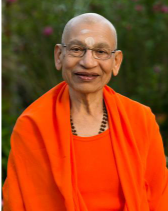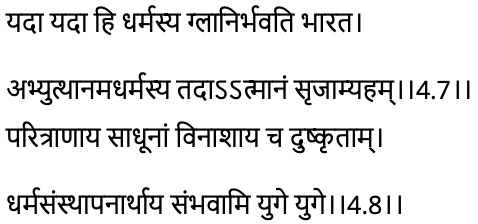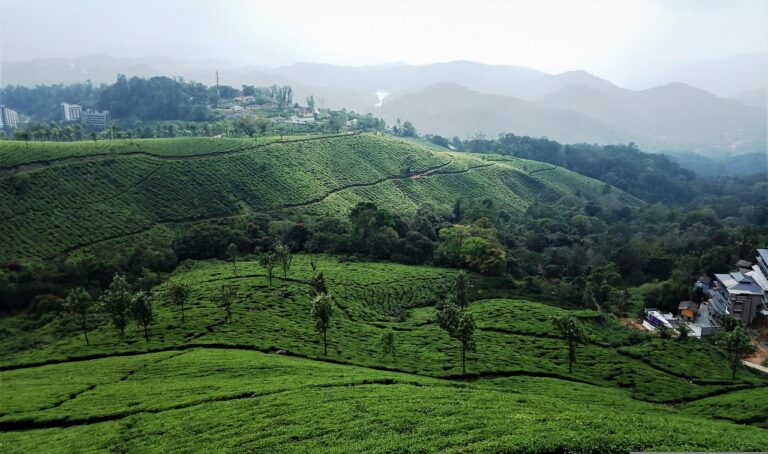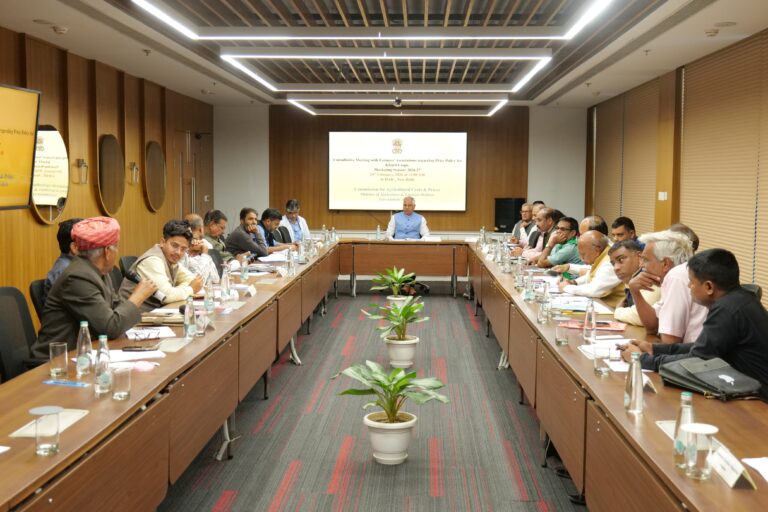
Spirituality: If you were to take birth, under what circumstance?
 By Swami Viditātmānand Saraswati*
By Swami Viditātmānand Saraswati*
Vivek (discrimination) and vairāgya (dispassion) arise and he becomes qualified for mokṣa (liberation).
Now the question arises: “If you are not required to take birth, why do you take birth? And, if you were to take birth, under what circumstance? What is it that makes it necessary for you to assume a physical body?” Bhagavān responds to these questions in the two famous verses below:

Bharata, whenever there is a decline in dharma and an increase in adharma, I bring myself to being. (my upādhi). For the protection of those who are committed to dharma and the destruction of evil and for establishing dharma, I come into being in every yuga. (4- 7,8)
Giving the reason for his birth, meaning avatāra, Bhagavān says that whenever there is a decline in dharma and an increase in adharma, I take on avatāra. Thus, Bhagavān gives very much importance to the protection of dharma.
In the introduction of the commentary on Bhagavad Gītā, Bhagavān Śaṅkarācārya explains that the ādipuruṣa who himself is separate from māyā is Bhagavān Nārāyaṇa and he has created this universe and all the living beings in it with His māyā. After creating the universe, due to the desire of protecting it and maintaining it, Bhagavān arranged for dharma. This means that dharma is inevitable for sustaining the universe and maintaining order in it. The one that upholds is dharma. The same paramātmā, because He upholds this universe is called dharma and that same paramātmā is manifested as the destiny and order in this universe and the entire universe moves according to that order. Dharma is because of which all the different elements of the universe behave cooperatively with each other so that harmony is maintained. Only śāstra gives the teachings of that dharma. As mentioned earlier, living beings other than human beings and insentient elements also live within the limits of this dharma and therefore, they do not break the harmony of the universe. However, Bhagavān has given some freedom to human beings. The reason for giving this freedom is that by using it appropriately, he can attain the welfare of his life – can progress at both the material and spiritual level. That can only be possible when his actions are in accordance with dharma, the order of the universe, and harmony.
Śāstra describes four puruṣārtha for a human being: dharma, artha, kāma and mokṣa. Because of ignorance, one has ahaṁbhāva (a sense of doer-ship and enjoyer-ship) in the upādhi and therefore, he continuously experiences insecurity and unhappiness. One constantly attempts to remove them, to be free from them. This is called puruṣārtha. He desires artha to be free from insecurity and fear, and desires kāma to be free from sorrow. Money, wealth, power, fame etc. are included in artha and the happiness arising from the senses, mind and intellect by enjoying the viṣaya (objects) are included in kāma. Craving for artha – kāma is natural in every human being. If the pursuance of artha – kāma is based on dharma, ethics and values, it can be a blessing. Even if it does not contribute to spiritual advancement instantly, it can definitely give material happiness. As a result, over time, discrimination and dispassion arise in one and he becomes qualified for mokṣa (liberation). When that happens, the practice of dharma continues; however, that is in the form of nivṛtti (inaction). In this manner, pravṛtti and nivṛtti, the two types of dharma are described in Veda. It can be said that pravṛtti is for dharma abhyudaya, which means material development; and, nivṛtti is for dharma niḥśreyaśa which means spiritual advancement.
Here it should be noted that according to this definition, karmayoga should also be considered nivṛtti dharma, because the goal of karma is to be free from saṁsāra. The one that keeps us active in saṁsāra is pravṛtti dharma and the one that frees us is nivṛtti dharma. In that sense, the words pravṛtti and nivṛtti can be used. In the secondary sense, pravṛtti means physical activity and nivṛtti means physical inactivity.
*Swami Viditātmānand Saraswati has been teaching Vedānta Prasthānatrayī and Prakaraṇagranthas for the last 40 years in Ahmedabad, Gujarat. Throughout the year, he conducts daily Vedānta discourses, accompanied by retreats, and Jñāna Yajñas on Vedānta in different cities in India and in foreign countries.





